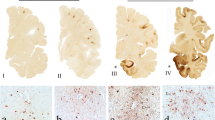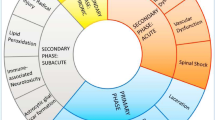Abstract
The purpose of this study was to investigate memory for trauma in patients who were initially amnesic of the trauma as a result of mild traumatic brain injury (MTBI). Motor vehicle accident survivors who sustained a MTBI were assessed for their memory within 1-month posttrauma (n = 79) and again at 2-years posttrauma (n = 50). Consistent with their brain injury, all patients reported significant amnesia of their accident at initial assessment. At 2-years posttrauma, 40% were able to remember their accident. Reporting memory for the trauma was associated with shorter duration of posttraumatic amnesia. These findings suggest that people reconstruct memories of trauma in the absence of complete encoding of the experience. Possible mechanisms for memory reconstruction are considered.
Similar content being viewed by others
References
American Congress of Rehabilitation Medicine. (1993). Definition of mild traumatic brain injury. Journal of Head Trauma Rehabilitation, 8, 86–87.
Association for the Advancement of Automotive Medicine. (1990). The Abbreviated Injury Scale. Des Plaines, IL: AAAM.
Brewin, C. R., Dalgleish, T., & Joseph, S. (1996). A dual representation theory of posttraumatic stress disorder. Psychological Review, 103, 670–686.
Bryant, R. A. (1996). Posttraumatic stress disorder, flashbacks, and pseudomemories in closed head injury. Journal of Traumatic Stress, 9, 621–630.
Bryant, R. A., & Harvey, A. G. (1995). Acute stress response: A comparison of head injured and non-head injured patients. Psychological Medicine, 25, 869–874.
Bryant, R. A., & Harvey, A. G. (1998). The relationship between acute stress disorder and posttraumatic stress disorder following mild traumatic brain injury. American Journal of Psychiatry, 155, 625–629.
Bryant, R. A., & Harvey, A. G. (1999). The influence of traumatic brain injury on acute stress disorder and posttraumatic stress disorder following motor vehicle accidents. Brain Injury, 13, 15–22.
Bryant, R. A., Harvey, A. G., Dang, S. T., & Sackville, T. (1998). Assessing acute stress disorder: Psychometric properties of a structured clinical interview. Psychological Assessment, 10, 215–220.
Christianson, S. A., & Engelberg, E. (1997). Remembering and forgetting traumatic experiencing: A matter of survival. In M. A. Conway (Ed.), Recovered memories and false memories. Oxford: Oxford University Press.
Gronwall, D., & Wrightson, P. (1980). Duration of post-traumatic amnesia after mild head injury. Journal of Clinical Neuropsychology, 2, 51–60.
Harvey, A. G., & Bryant, R. A. (1998). Acute stress disorder following mild traumatic brain injury. Journal of Nervous and Mental Disease, 186, 333–337.
Harvey, A. G., & Bryant, R. A. (2000). A two-year prospective evaluation of the relationship between acute stress disorder and posttraumatic stress disorder following mild traumatic brain injury. American Journal of Psychiatry, 157, 626–628.
Hyman, I. E., & Loftus, E. F. (1998). Errors in autobiographical memory. Clinical Psychology, 18, 933–947.
Peters, L., Andrews, G., Cottler, L. B., Chatterji, S., Janca, A., & Smeets, R. (1996). The composite international diagnostic interview post-traumatic stress disorder module: Preliminary data. International Journal of Methods in Psychiatric Research, 6, 167–174.
Roediger, H. L., McDermott, K. B., & Goff, L. M. (1997). Recovery of true and false: Paradoxical effects of repeated testing. In M. A. Conway (Ed.), Recovered memories and false memories. Oxford: Oxford University Press.
Sbordone, R. J., & Liter, J. C. (1995). Mild traumatic brain injury does not produce post-traumatic stress disorder. Brain Injury, 9, 405–412.
Schacter, D. L., & Crovitz, H. F. (1977). Memory functions after closed head injury: A review of the quantitative research. Cortex, 13, 150–176.
Author information
Authors and Affiliations
About this article
Cite this article
Harvey, A.G., Bryant, R.A. Reconstructing Trauma Memories: A Prospective Study of “Amnesic” Trauma Survivors. J Trauma Stress 14, 277–282 (2001). https://doi.org/10.1023/A:1011108816888
Issue Date:
DOI: https://doi.org/10.1023/A:1011108816888




